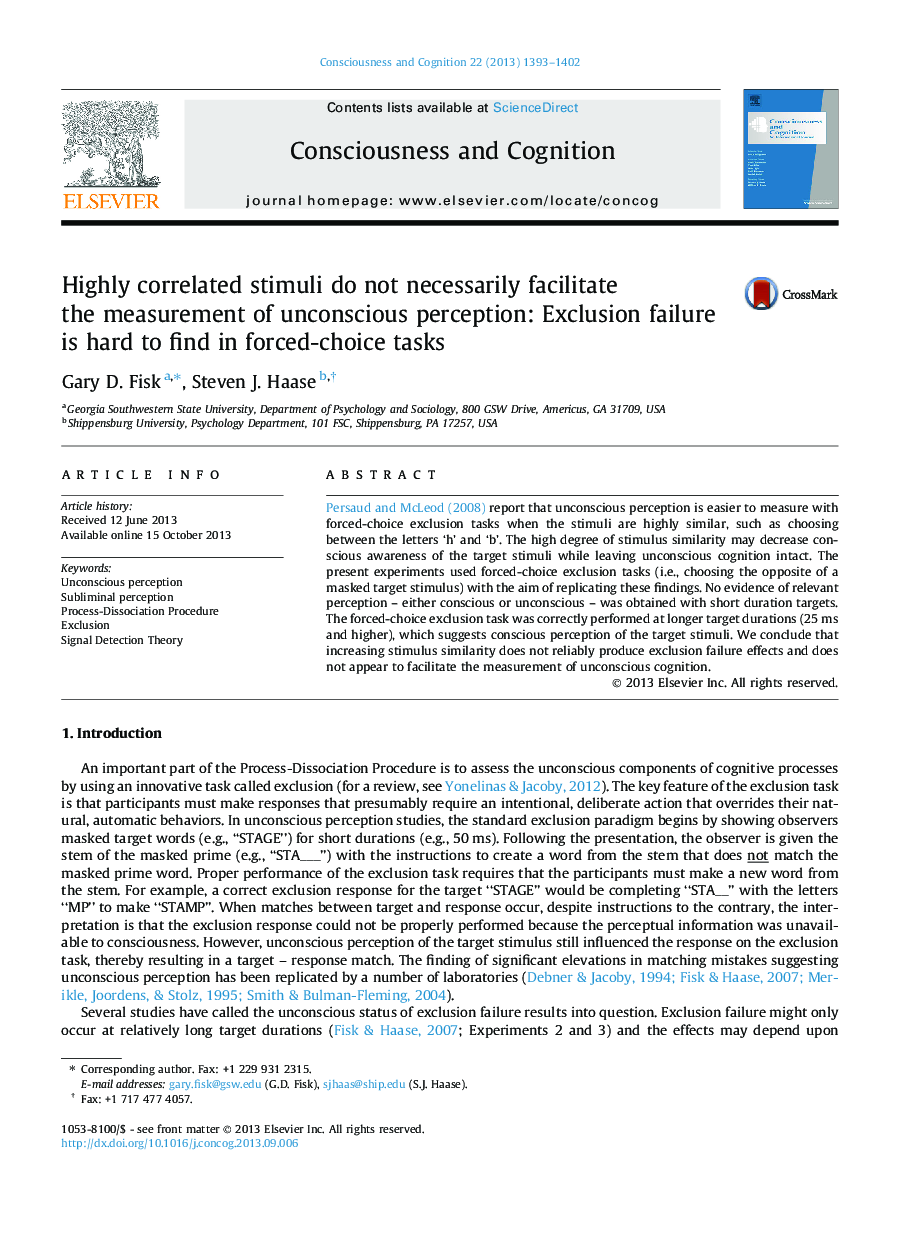| Article ID | Journal | Published Year | Pages | File Type |
|---|---|---|---|---|
| 10458520 | Consciousness and Cognition | 2013 | 10 Pages |
Abstract
Persaud and McLeod (2008) report that unconscious perception is easier to measure with forced-choice exclusion tasks when the stimuli are highly similar, such as choosing between the letters 'h' and 'b'. The high degree of stimulus similarity may decrease conscious awareness of the target stimuli while leaving unconscious cognition intact. The present experiments used forced-choice exclusion tasks (i.e., choosing the opposite of a masked target stimulus) with the aim of replicating these findings. No evidence of relevant perception - either conscious or unconscious - was obtained with short duration targets. The forced-choice exclusion task was correctly performed at longer target durations (25Â ms and higher), which suggests conscious perception of the target stimuli. We conclude that increasing stimulus similarity does not reliably produce exclusion failure effects and does not appear to facilitate the measurement of unconscious cognition.
Keywords
Related Topics
Life Sciences
Neuroscience
Cognitive Neuroscience
Authors
Gary D. Fisk, Steven J. Haase,
